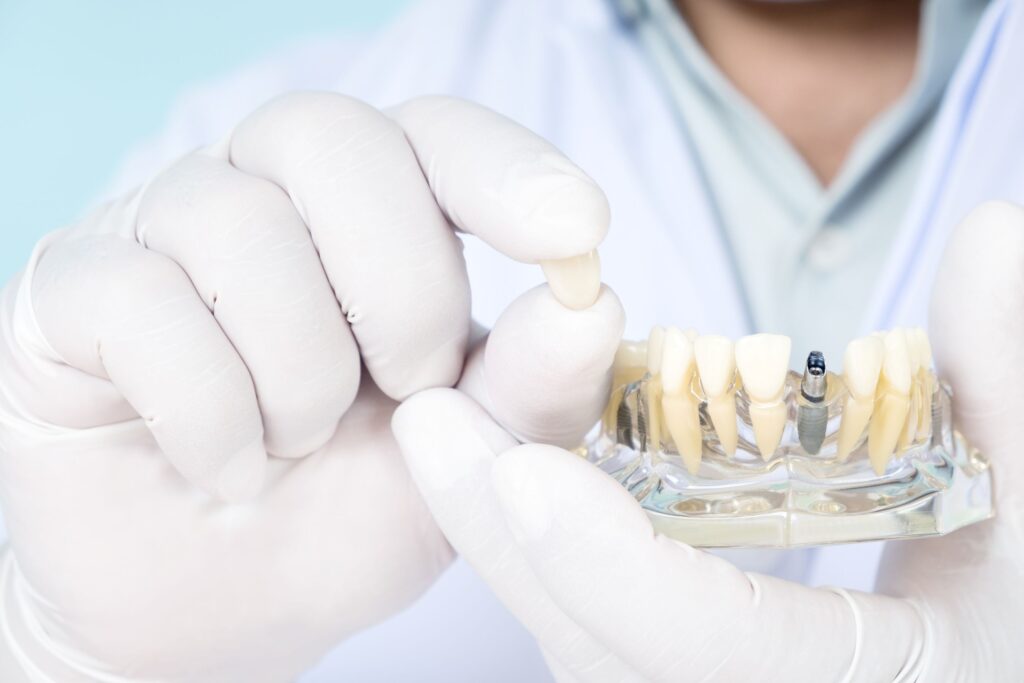
Of all the ways to replace missing teeth, dental implants are unique because they’re surgically embedded directly into your jawbone. As a result, they tend to both look and function more naturally than the alternatives like dentures or dental bridges.
However, some patients hesitate to undergo this procedure because they’re worried their new teeth will develop cavities. If you’re worried that your dental implants could develop decay, continue reading to learn why you can safely set your concerns aside!
What are Dental Implants Made Of?
Your restorations are customized to look as lifelike as possible, so many people assume they can get cavities just like their natural teeth. Thankfully, that’s not the case! Your implants are made of three main parts: the titanium screw that’s placed in your jawbone, a metal abutment to connect to your prosthetic, and then the tooth-shaped cap. This latter portion is typically created from resilient ceramic or resin that can be color-matched to reflect light like your enamel.
Can Dental Implants Get Cavities?
The good news is that because your new teeth aren’t made from the same organic material as the ones you were born with, they can’t get cavities. That doesn’t mean you no longer need to worry about cleaning your mouth, though. Your remaining pearly whites can still develop decay which can spread to your jawbone, eventually weakening it enough that it can no longer support them. Furthermore, you’re susceptible to gum disease, like peri-implantitis, which can cause your restoration to fail.
How Should I Maintain My Dental Implants?
Keeping your mouth clean is a simple and effective way to keep your prosthetics looking and feeling their best. You should brush twice daily with a soft-bristled toothbrush and non-abrasive toothpaste that won’t gauge the surface of your new teeth.
Follow this with flossing to remove plaque buildup from between them and along your gumline. However, be gentle with the string around your implant because it’s not connected with the same ligaments as your natural teeth. Instead, it’s held in place with a seal that can be damaged if you press too hard. Don’t push the floss into the gum pocket to avoid injuring it.
Finally, you should schedule a routine visit with your dentist every six months. This allows them to monitor your dental condition to spot and address any areas of concern before they can progress. For instance, you might miss the early signs of gum disease, but they know what to look for and can help you clear it up before it affects your implant.
Although dental implants can’t get cavities, maintaining your daily dental hygiene routine is as important as ever to keep them in good condition!
About the Practice
At Harbor Dental Care, people of all ages benefit from two dentists with 13I+ years of combined experience. Dr. Todd and Dr. Bhatt are devoted to restoring and enhancing the natural beauty of your smile and offer a wide array of services to meet your needs under one roof, including dental implants. They combine a compassionate and personable approach with state-of-the-art technology to devise individualized treatment plans for accurate, long-lasting results. If you need to replace missing teeth, you can request a consultation on the website or call (410) 228-5445.
